As the government are developing long term plans for the NHS in England, addressing longstanding inequalities faced by disabled people has never been more urgent.
Demand is rising - formal ADHD diagnoses have reached 80,000, (The Times, 2025) and emergency admissions for autistic children have increased by 86% between 2019 and 2024 (The Times, 2025). These figures show that more disabled people are turning to the NHS for support, and the system must adapt to meet their growing needs.
This makes the abolition of NHS England (NHSE) especially significant. While the aim is to streamline and integrate services, it raises a critical question: How will the government ensure the NHS 10-year plan addresses the persistent equity gap for disabled people?
Between 9th and 11th April 2025, Hanover ran an online survey with 1,738 members of the English public, exploring priorities for the Government’s long-term health and care strategy. In this survey we spoke to 463 people living in England who self-identified as having a physical or non-physical disability.
While this data captures a single moment in time, it offers valuable insight into how disabled people perceive the NHS today – and what they want to see change. These perspectives are essential for designing policy that truly considers the needs and wants of disabled people.
1. Confidence in Government is Critically Low Among Disabled People
One of the starkest findings from the survey is the widespread lack of confidence among disabled people in the Government’s ability to manage the NHS. While only 23% of those without a disability expressed confidence, this figure drops sharply to just 12% among disabled respondents. Over half (56%) of disabled people surveyed explicitly stated they were unconfident in the Government’s leadership.
This scepticism also extends to specific pledges, such as reducing waiting lists. Only 12% of disabled people believed the government would deliver on this promise - half the rate of confidence among non-disabled respondents (24%).
This deep mistrust is not without basis. Disability campaigners have long highlighted structural inequalities in healthcare - from inaccessible GP surgeries to the absence of transparent data on health outcomes for disabled populations. These longstanding issues appear to be shaping how disabled people view not only the present, but also the prospects for future reform.
2. Disabled People Prioritise Mental Health and Reducing Waiting Lists
Disabled people are clear about their priorities for the NHS’s long-term future, highlighting key areas that will need to be addressed imminently.
Patient waiting times top the list, with 82% of disabled respondents identifying them as a key concern. For those with physical disabilities, this figure rises to 85%, reflecting how disproportionately long waits can affect their wellbeing and quality of life.
Mental health is another critical issue. A notable 62% of disabled respondents called for greater investment in mental health services - significantly more than the 45% of non-disabled respondents who said the same.
This sharp contrast reveals a heightened awareness among disabled individuals of the need for accessible, responsive, and well-resourced mental health care. If the NHS is to serve everyone effectively, it must address these disparities with targeted action.
3. A Call for More Resources is Loudest Among the Disabled Community
Disabled people also display a more urgent need to see investment and improvement within the NHS. An overwhelming 84% of disabled respondents said they want to see availability of resources improved in NHS services, compared to 69% of those without disabilities.
This demand takes on even greater urgency in the wake of NHSE’s abolition. As new systems and structures take shape, the Government must ensure that resources are distributed in ways that address entrenched access and outcome gaps. Failing to do so risks further deepening inequalities already experienced by disabled communities.
4. Disabled People Report Lower Satisfaction with NHS Services
Although 69% of disabled people report being satisfied with their NHS experience, this remains lower than the general population (73%) and non-disabled respondents (74%). Interestingly, the satisfaction gap widens further among disabled individuals from ethnic minority backgrounds (68%) and those in the LGBT+ community (61%).
This disparity suggests that while many disabled patients do have positive interactions with NHS services, their experiences remain poor. Persistent barriers such as inaccessible facilities, limited communication support, and assumptions made by healthcare professionals, continue to undermine the quality of care.
Over time, these challenges can erode trust, contribute to poorer health outcomes, and impose financial costs not only on individuals but on the NHS itself. Addressing them is not just a matter of equity – it is essential for building a more effective and sustainable healthcare system.
Moving Forward: A Health System That Works for All
The data paints a sobering picture but also reveals a clear path for action. Disabled people in England know what they want: they value the NHS but are concerned about its future and the Government's ability to fix long-standing issues and urgently want reform that addresses their specific needs.
As the Government prepares to reconfigure NHS governance following NHSE’s abolition, it must ensure the voices of disabled people and other minority groups are not only heard, but meaningfully embedded into the policymaking process. Transparency, accessibility, and targeted resource allocation will be key to building a more equitable health service.
If you are interested in speaking to our team about these survey results, please contact [email protected].
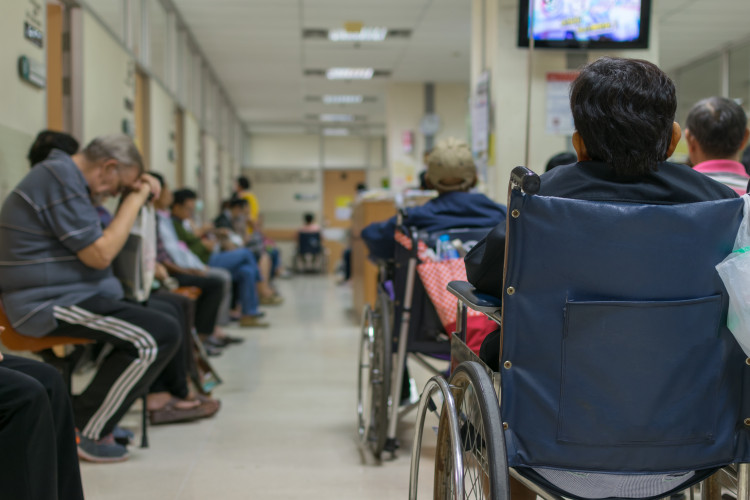
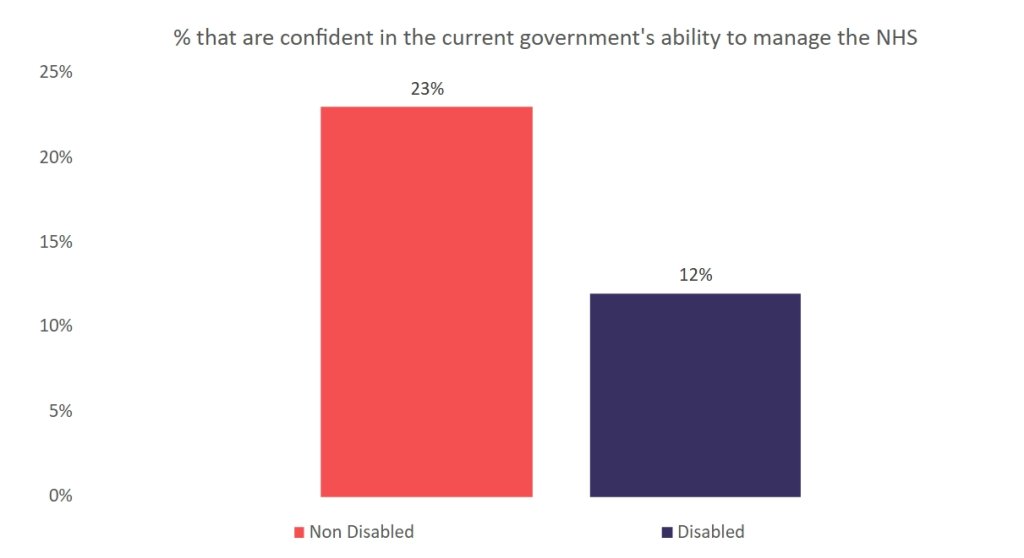
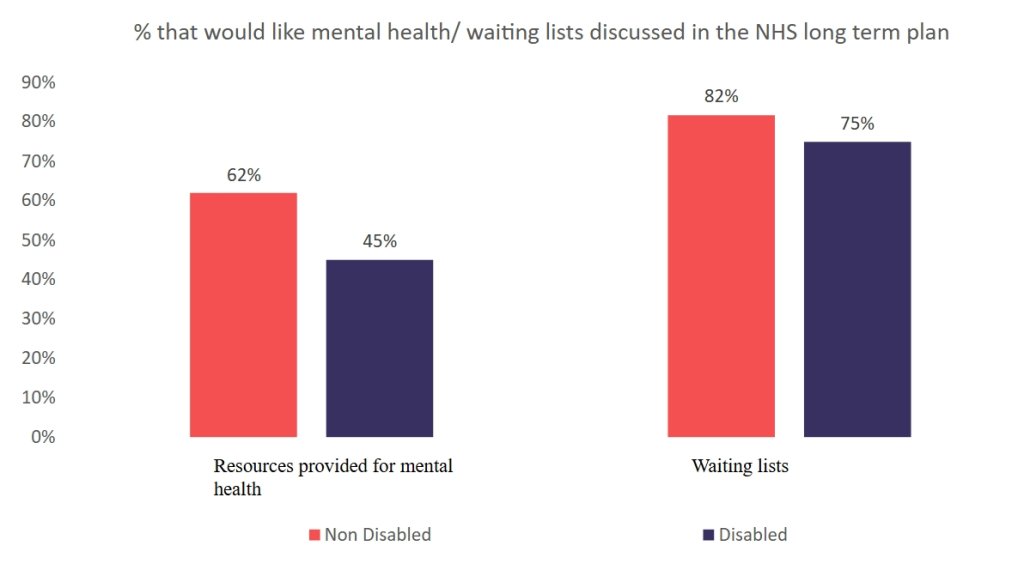
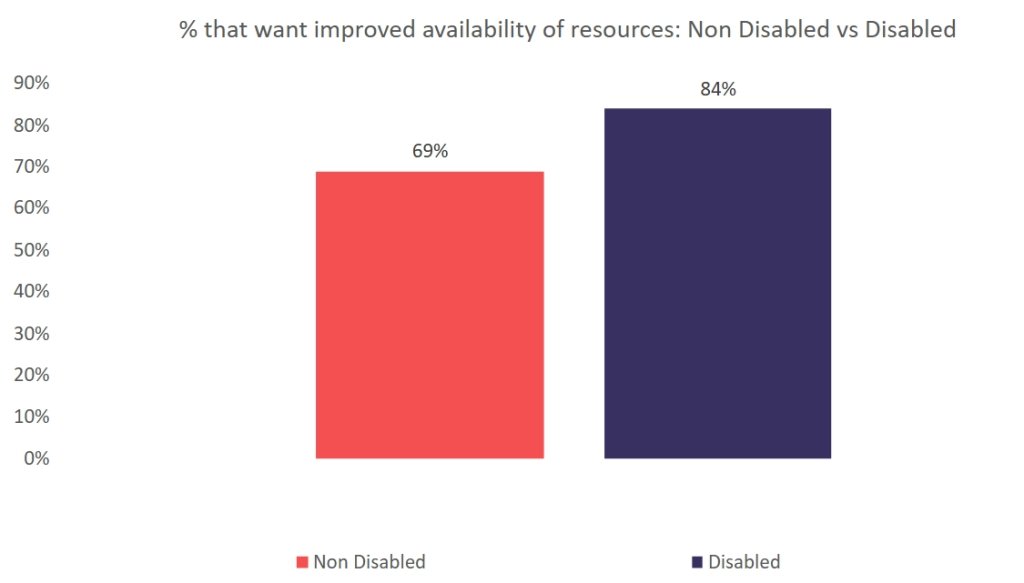
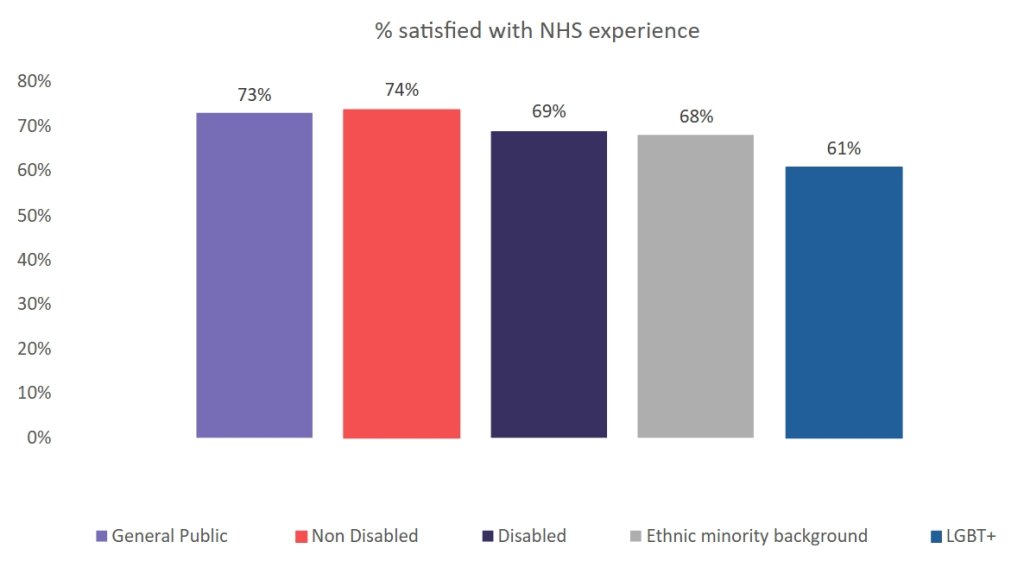
katedarkins-1-(2)-square.jpg)





